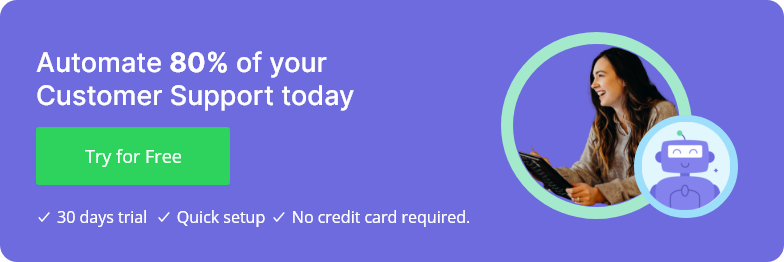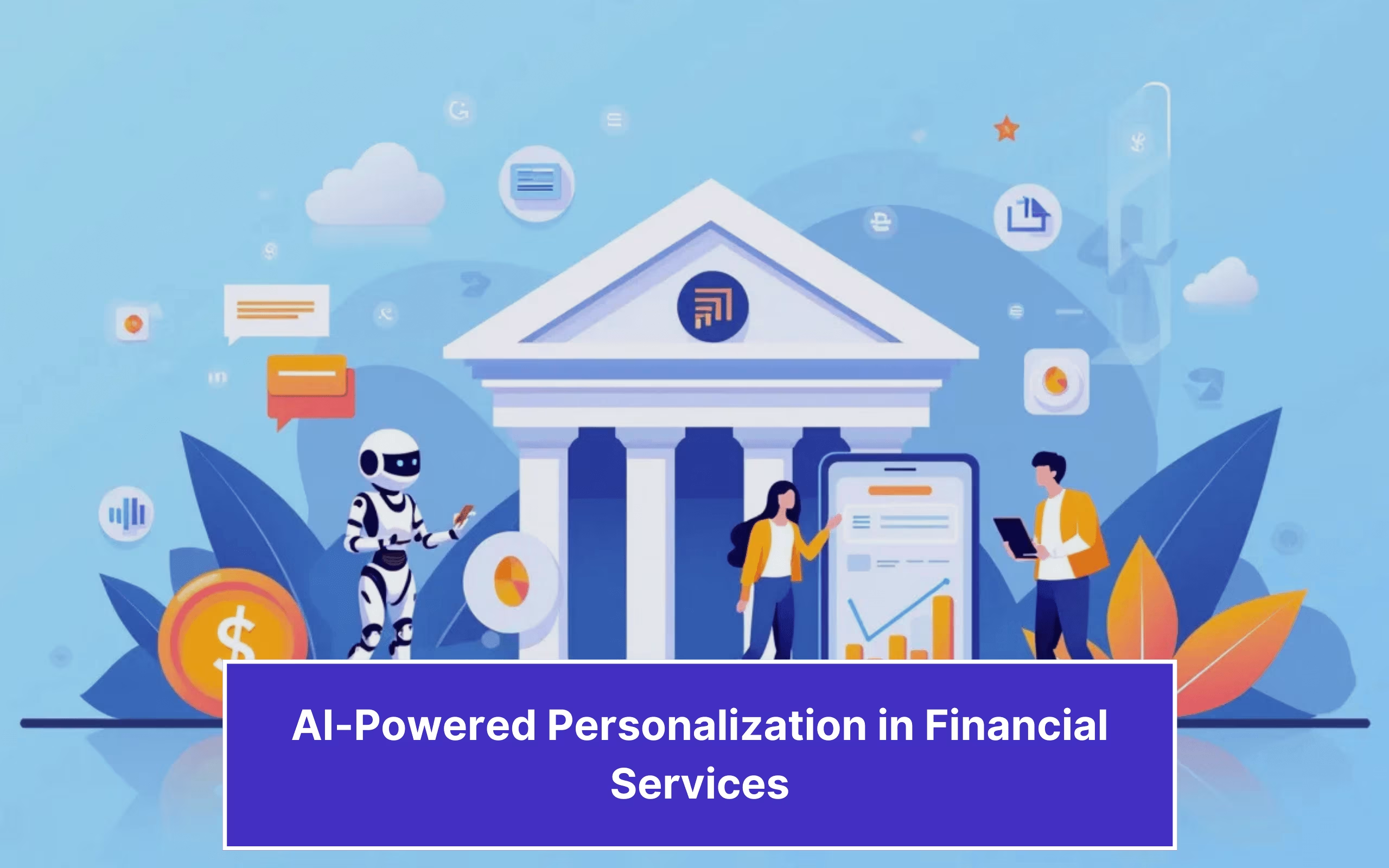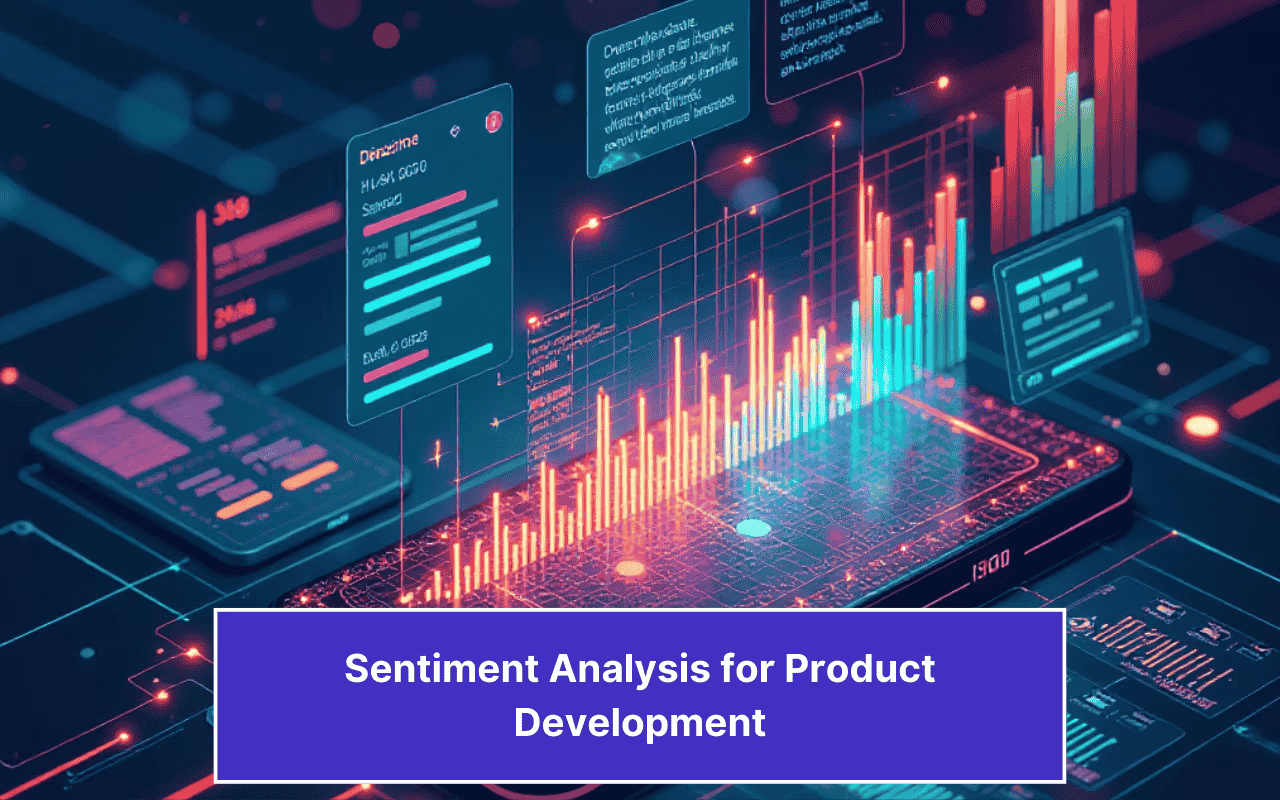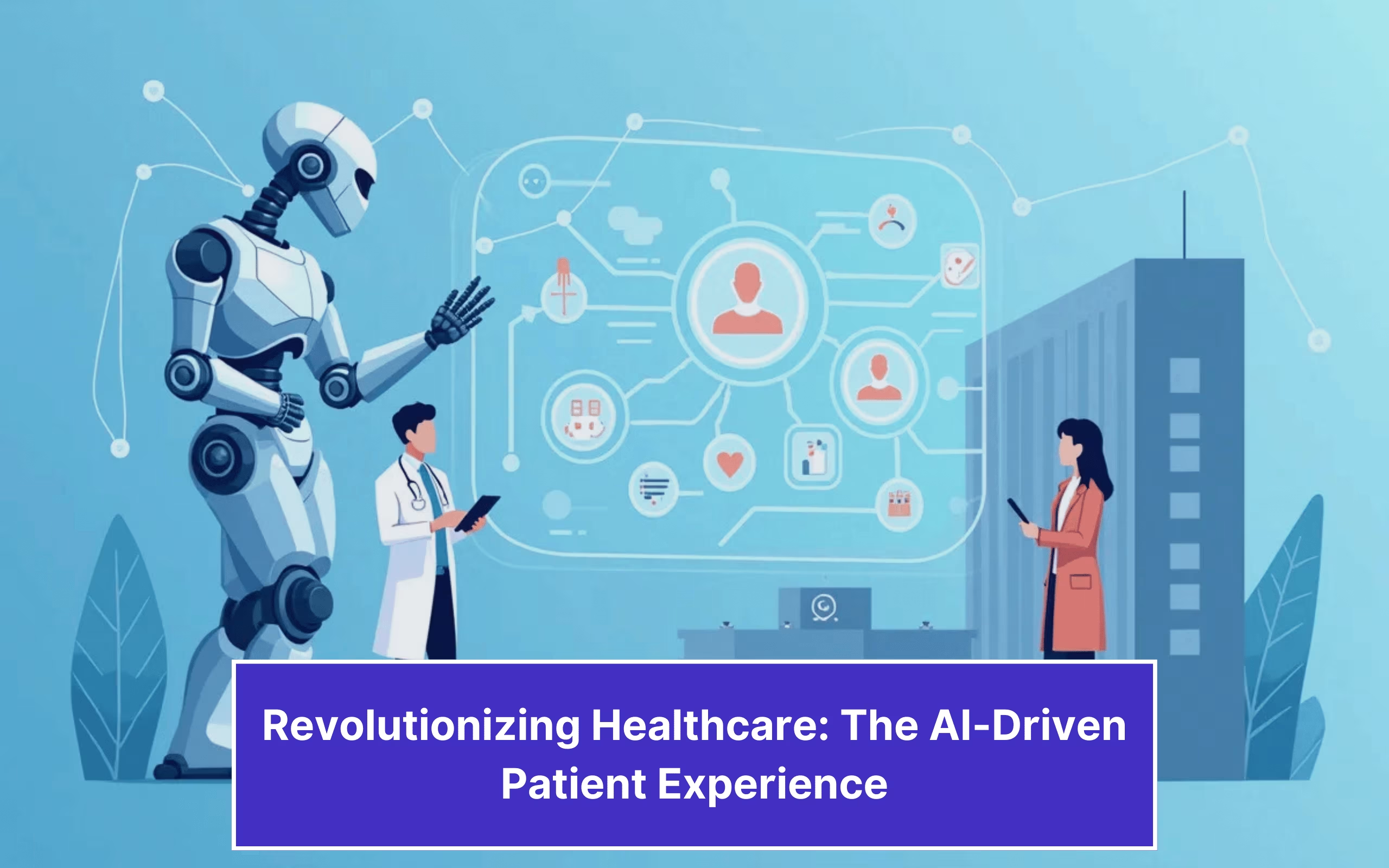Updated on June 30, 2025
“The vision for our assistant is to help you get things done.”
These were the exact words used by Sundar Pichai in 2018 in his demo of Google Duplex, an AI-powered voice agent that is an added feature to Google Assistant.
Sure enough, fast forward to four years later, and people across the globe are making use of Duplex to make reservations and book appointments.
Initially, the future of healthcare chatbots was not promising. But now, AI-powered systems and chatbots have made huge strides in almost every industry. It is no surprise, then, that the healthcare industry is also finding multiple use cases and applications for artificial intelligence-powered systems.

One of the biggest reasons for the growth of AI chatbots in the healthcare industry is a reduction in overhead costs. The growing popularity of smart devices and rapid internet connectivity have further boosted chatbots. They have become a surefire way to ensure patient engagement and tackle staffing challenges.
It suffices to say that AI-powered chatbots are on their way to becoming the next revolution in healthcare. According to Market.us, the global Artificial Intelligence market was valued to be worth USD 129.28 billion in 2022. From 2023 to 2032, it is estimated to reach USD 2967.51 billion growing at a CAGR of 36.8%.
As this new era of artificial intelligence takes over the healthcare industry, it is critical to understand all how chatbots in healthcare are changing the healthcare industry.
And that’s what we are covering in this article.
Without further ado, let’s dive deep into how healthcare chatbots are revolutionizing the U.S. healthcare industry.

What are healthcare chatbots?
Chatbots in healthcare are capable of carrying out daily tasks, such as setting up appointments, answering back to patients, and arranging data. A lot of healthcare organizations are rampantly using healthcare chatbots. There is still a lot of scope for development but whatever contribution these chatbots have made to the healthcare industry as of now is substantial and revolutionary.
Chatbots are transforming the healthcare industry
1. Dissemination of crucial medical information
The onset of the COVID-19 pandemic redefined the world as we know it. Among many industries, the healthcare industry is one to take a huge hit. In no time, healthcare practices found themselves to be understaffed. Add to this the spread of misinformation and panic that led to both symptomatic and asymptomatic patients flocking to hospitals in huge numbers.
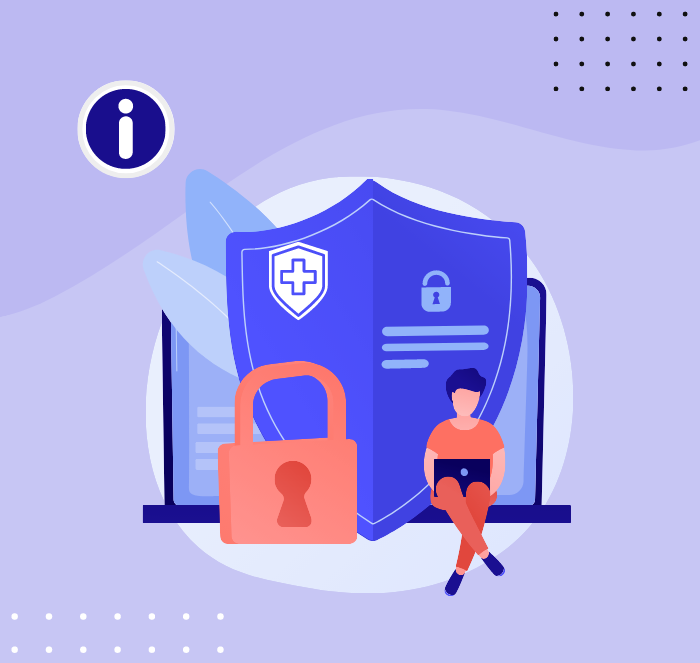
To combat this, major healthcare authorities such as The World Health Organization (WHO) implemented healthcare chatbots that were equipped to offer detailed information to the general public on symptoms of COVID-19, precautions, and instructions to follow on testing COVID positive, nearest medical facilities and more.
This is instrumental in reducing panic among the masses, thereby bringing down the number of patients who visit the hospital merely out of fear that they may have contracted the virus.
Similarly, healthcare chatbots can disseminate critical information about flu outbreaks and other public health concerns whenever public awareness is required.
2. Patient engagement
Patient engagement is an intuitive process where patients are consistently educated about their medical conditions, treatment plans, and wellness. To facilitate this, healthcare providers must maintain constant communication with their patients.
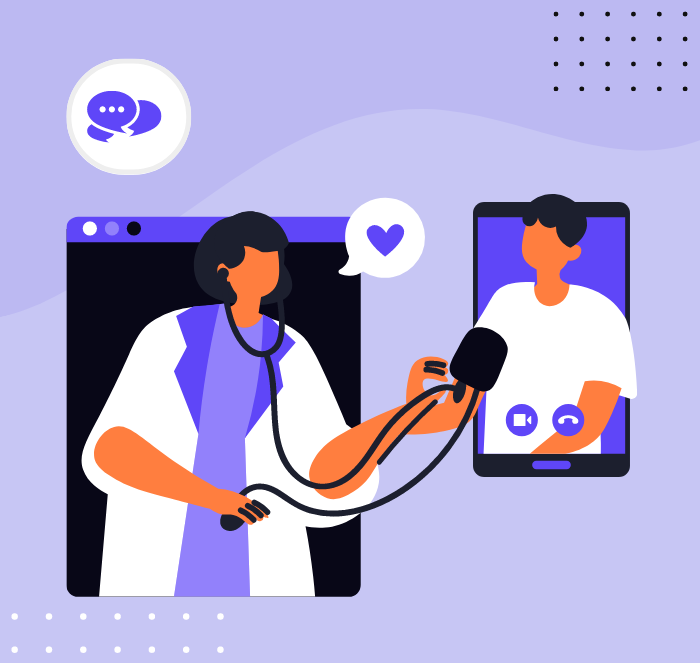
Efficient patient engagement requires healthcare professionals who are specifically assigned the task of periodically getting in touch with both new and existing patients to help them reach their healthcare goals. Now, considering how healthcare institutions are already facing a shortage of medical personnel, this can be quite an arduous task.
However, healthcare chatbots offer an efficient solution to the problem.
Chatbots in healthcare can be used to set up appointment reminders, drug information, drug administration instructions, symptom assessments, and so much more.
P.S.: Check out this article to learn more about the different use cases for healthcare chatbots.For a step-by-step approach to creating your own, refer to this healthcare chatbot guide to help you navigate through the development process.
By defining different touchpoints and clear pathways, chatbots in healthcare can provide the required support to patients at various stages of their healthcare journey. They can even be trained to provide the first level of primary care for non-critical patients, easing the burden on healthcare staff.
This way, healthcare chatbots can be leveraged to engage with patients regularly and exactly when required.
3. Automate redundant tasks
Healthcare staff deal with several administrative tasks daily. From collecting patient records to handling multiple queries, a large chunk of time is spent on mundane, repetitive tasks. This ultimately leads to staff burnout and a drop in productivity.
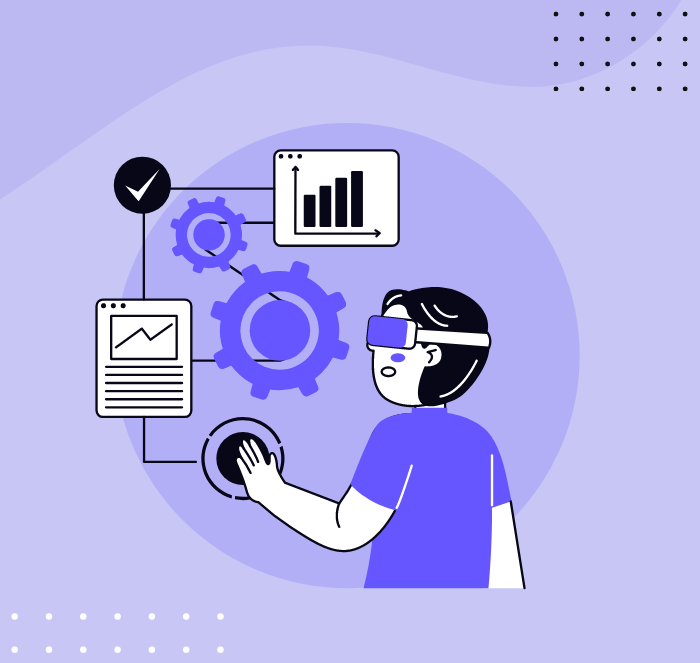
The room for a significant impact in this category is comparatively less than in patient care and diagnosis. But still, there is a lot of potential. It has been found that, on average, a nurse in the US spends 25% of her hours in administrative work. The technology that can help reduce workload in this category is RPA. It can carry out various tasks such as clinical documentation, revenue cycle management, and medical records management.
Many healthcare organizations have been integrating chatbots in healthcare to carry out daily tasks. This may include scheduling appointments, organizing data, and responding to the basic queries of the patients.
With chatbots for healthcare, you can easily automate these tasks. Healthcare chatbots can be trained to collect essential patient data and store them systematically. They can also be leveraged to collect patient feedback. Chatbots in healthcare can even be used to answer FAQs that come in daily. This includes any queries related to hospital networks, health insurance, patient appointments, etc. Healthcare chatbots can be equipped to take over these time-consuming, repetitive tasks. Hence healthcare staff can focus on much more complex tasks, thereby increasing productivity and efficiency.
Begin Your Chatbot Journey Now Without Sign up4. Aid in prescription refills
If you are someone who has a health concern that requires you to take prescription drugs regularly, then you know the hassle behind getting your refills on time. It involves multiple calls to the pharmacist and sometimes repeatedly having to furnish your details to get your medicines. It can get frustrating.
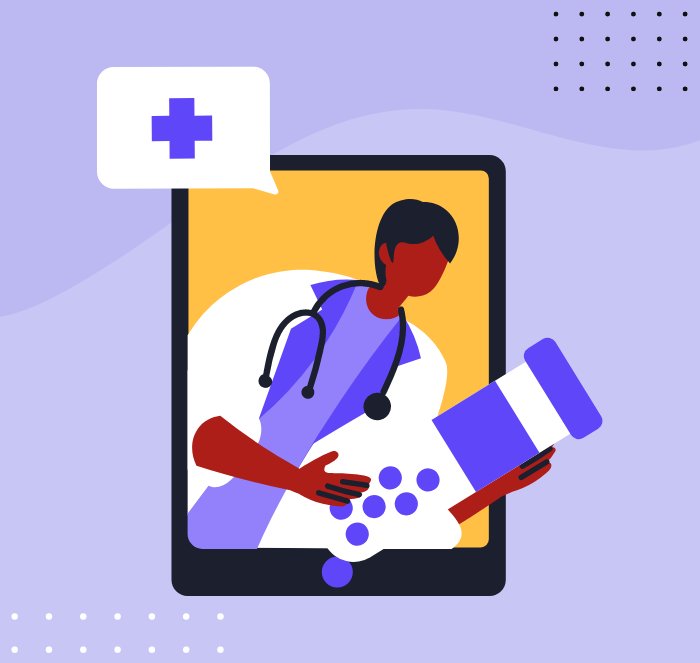
Implementing healthcare chatbots, on the other hand, can provide a two-fold advantage. With chatbots able to collect patient details and the required drug information, healthcare staff don’t have to deal with multiple phone calls and follow-up requests. Additionally, patients need to drop their details once using the chatbot, and the chatbot in healthcare will take care of checking the inventory and getting a doctor’s approval. Once this is done, the healthcare chatbot will notify you once your order is packed and ready to be collected.
5. Assist with mental health concerns
The role of chatbots for healthcare in assisting patients with their mental health deserves special mention. Healthcare chatbots, or ‘therapist’ chatbots, in this case, can provide online therapy and can be used to help out patients effectively.
In addition to all the usual ways, such as 24/7 assistance and enabling seamless appointment bookings, healthcare chatbots can be used for cognitive behavioral therapy.
Cognitive Behavioral Therapy (CBT) focuses on identifying and then changing those thoughts and patterns that can negatively influence a person’s mental health.
Artificial intelligence experts work together with psychologists and mental health professionals to create chatbots for healthcare that can understand the intent of a conversation and then respond with exchanges that are CBT-oriented. This means that, on some level, healthcare chatbots can act as a therapist. Human intervention can be called in whenever necessary.
Fun fact: The first ‘chatterbot,’ or chatbot as we call it today, was developed in 1966 and was called Eliza. Interestingly enough, ELIZA acted as a therapist, asking open-ended questions and responding with follow-ups!

6. Diagnosis and treatment application
The first attempts at medical diagnosis with the help of artificial intelligence can be found in 1970 when Stanford university developed MYCIN for diagnosing blood-borne bacterial infections. After this discovery, people discovered that artificial intelligence is the future of healthcare chatbots. But then, artificial intelligence was not fully adopted for medical diagnosis as it was partially developed and lacked accuracy. Also, the integration of artificial intelligence with medical workflows was not seamless.
A recent example of the use of AI for medical diagnosis and treatment applications is IBM’s Watson, which has received much attention. Watson consists of a combination of machine learning and NLP. It is a complete set of cognitive facilities, including speech and language, vision, and machine learning-based data-analysis programs.
The biggest problem with AI in healthcare is in terms of integration. Although the condition improves with time, it is limited to research labs. New technology has been developed that finds the genetic traces of cancer for diagnosis. There is a long way to go before we can expect a complete transition to a healthcare industry based on artificial intelligence.
What does this mean for the healthcare workforce?
The increasing efficiency of AI is posing a threat to the employability of human beings. The Oxford Martin Institute suggested that there will be a 35% job loss in the UK over the next ten years because of the development of AI. But many other studies have found a slight possibility of job automation, but there will only be a partial loss of jobs for human beings. This can happen because of various factors, including the high cost of technology, the low cost of labor and regulatory laws, etc. These factors may lead to less than 5% annual job loss.
In the current scenario, there has been no substantial job loss because of technology in healthcare. In the future, job loss will not be restricted to just manual jobs in healthcare. Professions like radiologists and pathologists will also be affected by the development of technology. Many AI technologies have been developed that are making radiology and pathology easier and more efficient.
But that is a long way to go. We need concrete changes in the healthcare industry to make technology and AI a significant part of it.
Conclusion
Since ELIZA, chatbots have come a long way and have gotten much more advanced. Innovation and technology have enabled us to leverage chatbots for complex use cases and applications in healthcare, easing staffing challenges, reducing overhead costs, and so much more. Without question, there are more exciting prospects for chatbots in the field of healthcare, enabling them to operate seamlessly.
Kommunicate, an efficient customer support platform, enables you to build custom healthcare chatbots for various use cases. Their NLP-based bot builder allows you to build chatbots with zero code and in no time. If you’d like to learn more, simply visit Kommunicate.io or try it for free here.


CEO & Co-Founder of Kommunicate, with 15+ years of experience in building exceptional AI and chat-based products. Believes the future is human + bot working together and complementing each other.
At Kommunicate, we are envisioning a world-beating customer support solution to empower the new era of customer support. We would love to have you onboard to have a first-hand experience of Kommunicate. You can signup here and start delighting your customers right away.

